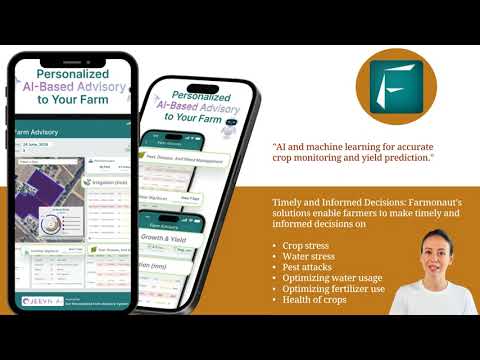Essential Guide: Navigating Agricultural Immigration Enforcement in California’s Central Valley and San Luis Obispo County
“California’s Central Valley produces 25% of the nation’s food, making agricultural immigration enforcement a critical issue.”

As we delve into the complex world of agricultural immigration enforcement in California’s Central Valley and San Luis Obispo County, it’s crucial to understand the multifaceted challenges facing both employers and employees in this vital sector. Our comprehensive guide aims to shed light on the intricate legal landscape, providing essential information for navigating workplace immigration inspections and understanding farm employee rights.
The Importance of Agricultural Immigration Enforcement Preparedness
In recent years, heightened enforcement activities in California’s agricultural heartland have sent ripples of concern through farming communities. The San Luis Obispo County Farm Bureau has taken proactive steps to educate local agricultural employers about their constitutional rights and responsibilities during immigration enforcement actions. This initiative comes at a critical time when many agricultural workers are staying home, avoiding work, and even keeping their children from school due to fears of potential raids.
As a leading agricultural technology company, Farmonaut recognizes the importance of addressing these challenges. While our focus is on providing advanced satellite-based farm management solutions, we understand that the stability of the agricultural workforce is fundamental to the industry’s success.
Understanding Employer Rights and Obligations
When faced with immigration enforcement, agricultural employers must be well-versed in their rights and obligations. It’s crucial to inform employees of their rights, which include:
- The right to remain silent
- The right to refuse answering questions about immigration status without legal representation
- The right to consult an attorney
These rights are fundamental in ensuring that employees do not feel pressured or intimidated during enforcement actions. As employers, we must create an environment where workers feel protected and informed.
Federal Authorities and Workplace Visits
Federal authorities, particularly those acting under the Department of Homeland Security, have the legal authority to conduct workplace visits and inspections. However, these agencies must adhere to specific procedures during such actions. As employers, it’s our responsibility to understand and assert our rights during these encounters.
Key points to remember:
- Do not give consent to site visits or inspections unless agents present a valid warrant
- Clearly state, “I cannot consent, and I do not consent,” to prevent agents from exceeding their legal bounds
- Always request to see proper authorization before allowing access to your premises
Preparing for Immigration Enforcement Actions
To ensure workplace preparedness, we recommend that agricultural employers take the following steps:
- Designate a trained manager or executive to handle interactions with immigration enforcement
- Establish clear protocols for verifying warrants and denying access if proper authorization is not provided
- Train staff on the essential elements of a valid judicial search warrant
- Create a system for documenting enforcement actions, including agent names and badge numbers
“San Luis Obispo County’s $1 billion agricultural industry relies heavily on immigrant labor, with 73% of farmworkers being foreign-born.”
Employee Rights During Immigration Enforcement
As employers, we play a crucial role in informing our employees about their rights during encounters with immigration enforcement. Here are key points to communicate:
- Remain calm and do not flee, as this could be interpreted as suspicious behavior
- Exercise the right to remain silent
- Request an attorney before answering questions or signing documents
- Refrain from providing false information
- Attempt to document details of any enforcement action experienced
By educating our workforce on these rights, we can help protect both our employees and our businesses from potential legal complications.
Post-Enforcement Action Procedures
Following any enforcement action, it’s crucial to meticulously document what occurred. This documentation should include:
- Number of agents present
- Their appearance and conduct
- Nature of interactions with employees
- Any records or documents seized
If immigration officers seize records, employers may be entitled to an extension of up to three days for producing information. It’s important to collect all relevant documents and seek legal counsel if needed.
Compliance with California Labor Laws
In addition to federal regulations, California has specific legal requirements that agricultural employers must follow. These include:
- Posting a Notice to Employees regarding I-9 inspections and immigration record audits (as mandated by Labor Code section 90.2)
- Adhering to state labor laws protecting workers regardless of immigration status
- Providing required breaks, wages, and working conditions as stipulated by California law
Compliance with these laws is not only legally necessary but also crucial for maintaining a stable and productive workforce.
Explore Farmonaut’s Satellite API for advanced agricultural insights
The Role of Technology in Modern Agriculture
While navigating the complexities of immigration enforcement, it’s important to remember that technology plays an increasingly vital role in modern agriculture. Companies like Farmonaut are at the forefront of this technological revolution, offering solutions that can help farmers optimize their operations regardless of workforce challenges.
Farmonaut’s satellite-based crop health monitoring and AI-driven advisory systems provide valuable tools for farmers to make informed decisions about crop management. These technologies can help mitigate some of the challenges posed by labor shortages or uncertainties in the agricultural workforce.
Agricultural Immigration Enforcement Preparedness Checklist
| Preparedness Action Item | Completion Status | Responsible Party | Due Date |
|---|---|---|---|
| Establish written immigration compliance policy | |||
| Conduct I-9 form audit | |||
| Train employees on rights during ICE raids | |||
| Designate company representative for ICE interactions | |||
| Create list of emergency contacts (including legal counsel) | |||
| Prepare document request response protocol | |||
| Develop communication plan for employees and stakeholders |
The Importance of Legal Counsel
Given the complexity of immigration law and the potential consequences of non-compliance, we strongly recommend that agricultural employers seek legal counsel when dealing with immigration enforcement issues. An experienced attorney can provide invaluable guidance on:
- Interpreting and responding to warrants and subpoenas
- Protecting employee rights during enforcement actions
- Ensuring compliance with both federal and state labor laws
- Developing comprehensive immigration compliance policies
Investing in legal expertise can save significant time, resources, and potential legal complications in the long run.
Balancing Compliance and Productivity
While navigating the complexities of immigration enforcement, it’s crucial to maintain focus on agricultural productivity. Farmonaut’s advanced farm management solutions can help streamline operations and optimize resource use, allowing farmers to concentrate on their core business while ensuring compliance with legal requirements.
Our satellite-based crop health monitoring and AI-powered advisory systems provide valuable insights that can help farmers make informed decisions, regardless of workforce challenges. By leveraging technology, we can work towards a more resilient and efficient agricultural sector.
Access Farmonaut’s API Developer Docs for integration options
Community Support and Resources
Navigating agricultural immigration enforcement challenges requires a community-wide effort. We encourage farmers and agricultural employers to:
- Engage with local farm bureaus and agricultural associations for up-to-date information and support
- Participate in workshops and training sessions on immigration compliance
- Share experiences and best practices with fellow agricultural employers
- Collaborate with local legal aid organizations to ensure workers have access to legal resources
By working together, we can create a more resilient and informed agricultural community in the face of immigration enforcement challenges.

The Future of Agricultural Labor and Technology
As we navigate the current challenges of agricultural immigration enforcement, it’s important to look towards the future. The agricultural sector is evolving rapidly, with technology playing an increasingly significant role. At Farmonaut, we believe that the integration of advanced technologies can help address some of the labor challenges faced by the industry.
Our satellite-based solutions and AI-driven advisory systems are designed to optimize farm operations, potentially reducing labor dependencies and increasing overall efficiency. While these technologies cannot replace the invaluable contribution of agricultural workers, they can complement human expertise and help create a more sustainable and productive farming ecosystem.
Conclusion: Navigating the Path Forward
As we conclude our comprehensive guide on navigating agricultural immigration enforcement in California’s Central Valley and San Luis Obispo County, we emphasize the importance of preparedness, legal compliance, and community support. The challenges faced by agricultural employers and workers in this complex landscape are significant, but not insurmountable.
By staying informed about legal rights and responsibilities, implementing robust preparedness strategies, and leveraging technological advancements in agriculture, we can work towards a more secure and productive future for California’s vital agricultural sector. Remember, knowledge and preparation are your best tools in navigating these challenging waters.
At Farmonaut, we remain committed to supporting the agricultural community through our innovative technologies and solutions. While we focus on providing cutting-edge farm management tools, we recognize the importance of addressing the human element in agriculture, including the critical issues surrounding immigration enforcement.
Earn With Farmonaut: Join our Affiliate Program
Earn 20% recurring commission with Farmonaut’s affiliate program by sharing your promo code and helping farmers save 10%. Onboard 10 Elite farmers monthly to earn a minimum of $148,000 annually—start now and grow your income!
FAQ Section
Q: What should I do if ICE agents arrive at my farm?
A: Remain calm and ask to see their warrant. Do not consent to entry without a valid judicial warrant. Contact your designated representative and legal counsel immediately.
Q: Can my employees refuse to answer questions about their immigration status?
A: Yes, employees have the right to remain silent and can refuse to answer questions about their immigration status without legal representation.
Q: What documents am I required to provide during an immigration inspection?
A: You are required to provide I-9 forms for current employees and former employees (for up to 3 years after hire or 1 year after termination, whichever is later). Do not provide any additional documents without consulting legal counsel.
Q: How can I prepare my workforce for potential immigration enforcement actions?
A: Conduct regular training sessions on employee rights, develop a clear communication plan, and create an environment where workers feel safe reporting concerns.
Q: Are there any specific California laws I need to be aware of regarding immigration enforcement?
A: Yes, California has specific laws protecting worker privacy and requiring employers to notify employees of I-9 inspections. Familiarize yourself with AB 450 and consult with legal counsel for detailed guidance.



















